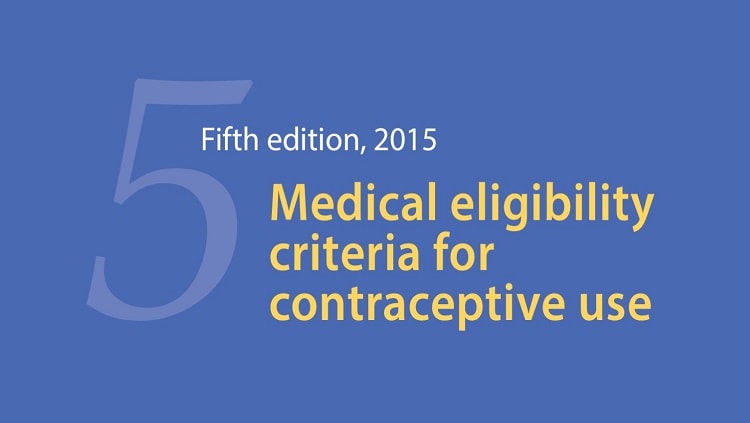Key points
Health care providers who counsel on and prescribe contraceptives need evidence-based guidance. The Medical Eligibility Criteria for Contraceptive Use and Selected Practice Recommendations for Contraceptive Use has information on all contraceptive methods. This improves access to acceptable, safe, and effective contraceptive methods.

Health care providers need accurate information
Health care providers around the world look to the World Health Organization (WHO) for clinical contraceptive guidance. The WHO provides this guidance in two documents: Medical Eligibility Criteria for Contraceptive Use and Selected Practice Recommendations for Contraceptive Use.
These guidance documents:
- Inform providers about the safety of various contraceptive methods for clients with specific health conditions and characteristics.
- Provide recommendations on initiation and use of contraceptive methods.
- Can be used as part of the process for improving the quality of care in family planning.
- May be adapted by countries and programs to their own country context.
CDC research informs guidance documents
WHO's Department of Sexual and Reproductive Health and Research and CDC's Division of Reproductive Health (DRH) actively monitor new contraceptive research findings to ensure information is up to date.
Since 1994, DRH has synthesized the latest scientific evidence on contraceptive safety and effectiveness, and provided expertise to WHO for their periodic updates of the contraceptive guidelines.
WHO contraceptive guidance documents
CDC/DRH has adapted these guidelines for use in the United States in Contraceptive Guidance For U.S. Health Care Providers
